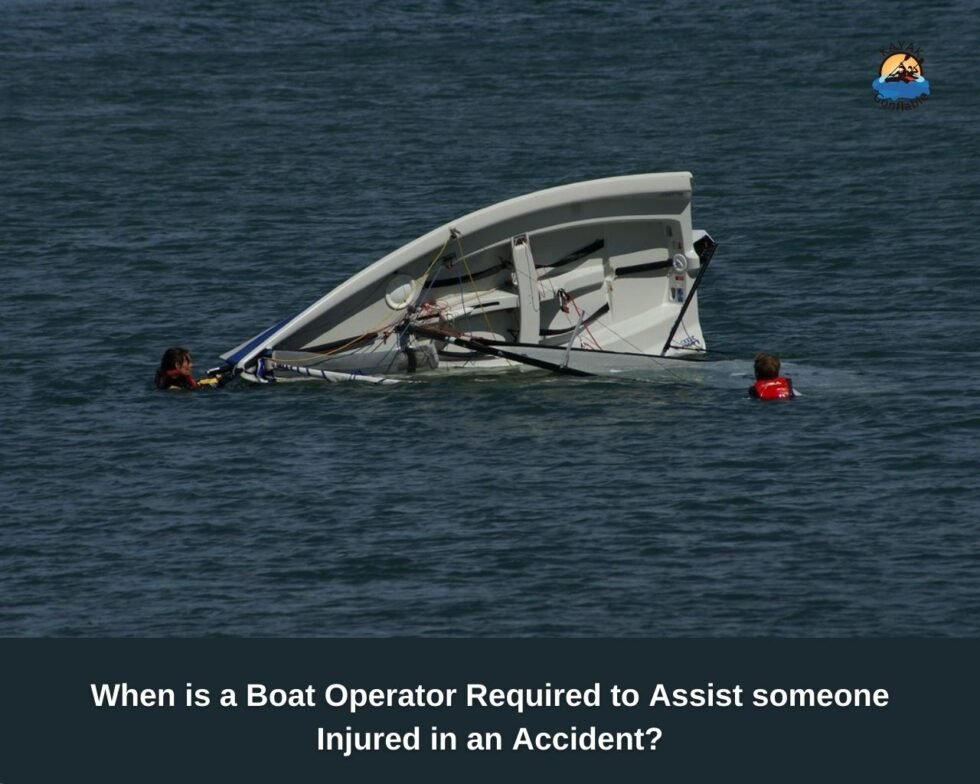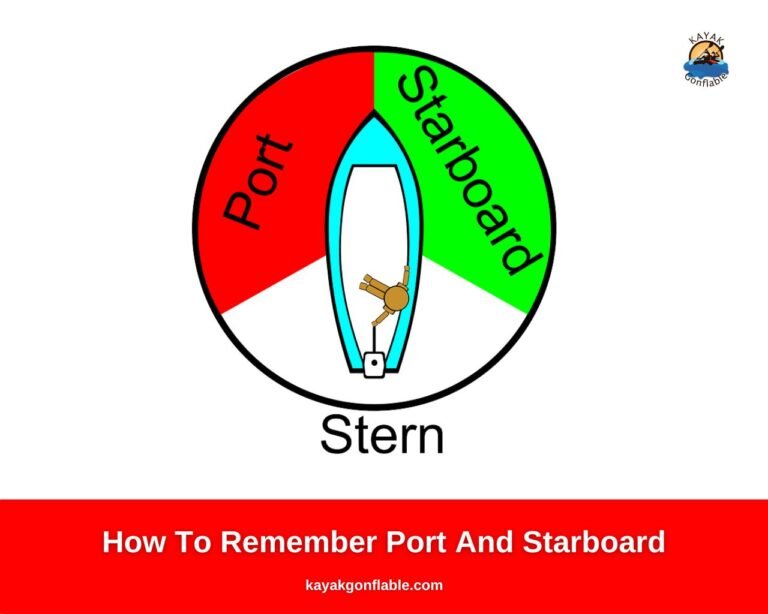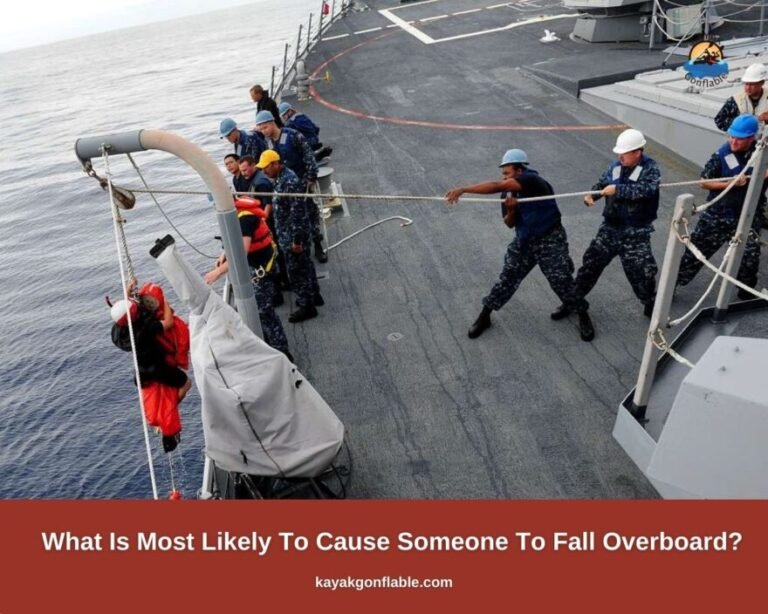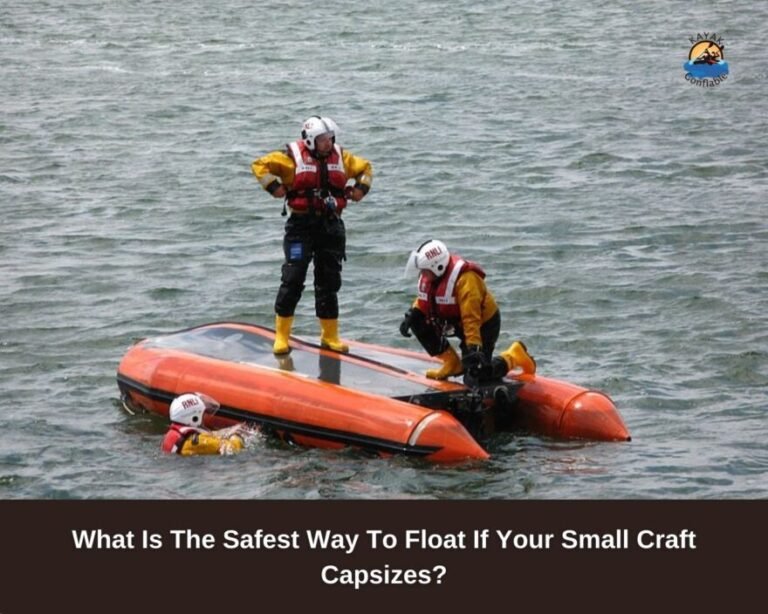When is a Boat Operator Required to Assist Someone Injured in an Accident?

Boating accidents can be frightening and often result in serious injuries to those who are or aren’t on board the boat. In many cases, those who are injured may also require assistance from others in order to safely reach shore.
When is a boat operator required to assist someone injured in an accident? The answer depends on a variety of factors, including the size and type of boat involved, whether the person requiring assistance is on board the boat or not, and the location of the accident.
Boat operators are not always required to help anyone injured in an accident, but there are specific instances when they are obligated to do so.
What Constitutes a Boat Accident?
Boat accidents are a common occurrence on both inland and coastal waterways. They can happen when a boat collides with another vessel, loses power, or is swamped. In order to determine if an accident qualifies as a boat accident, there are several factors that must be considered.
According to the Coast Guard, all boating accidents, regardless of severity, should be investigated to determine the cause and any resulting safety recommendations. Here are some key factors that should be considered when investigating a boat accident:
- What was the vessel’s speed at the time of the accident?
- What was the weather like at the time of the accident?
- Was there a loss of power to the boat’s propulsion system?
- Were there any witnesses to the accident?
- Was there anyone else on board besides the person who was injured?
The law surrounding when a boat operator is required to assist anyone injured in an accident
The Coast Guard has specific regulations pertaining to when a boat operator is required to render assistance to anyone injured in an accident. These regulations are based on the concept of mutual aid and assistance.
Generally speaking, a boat operator is required to render assistance if they can do so without creating a greater danger to themselves or others. This includes providing first aid and contacting emergency services if necessary.
In some cases, however, the boat operator may be required to take action even if it puts them at risk. There are a few exceptions to this rule, but they are limited.
If you are involved in an accident, it is important to know your rights and what the law requires of a boat operator. Read on and enlighten yourself.
What factors determine if assistance is required?
If an accident occurs, the boat operator should render assistance as soon as possible. There are many factors that determine if the boat operator should render assistance, but the most important factor is the level of injury.
The more life-threatening the injury is, the more likely it is likely the boat operator will be required to offer assistance. Another factor is how responsible the boat operator is for the accident that occurred. If the boat operator is not involved in the accident, he won’t have to render assistance and vice versa.
Other factors include the size of the operator’s boat, the type of boat, and whether the operator is familiar with the area. The skill and experience of the operator also play a massive role in whether or not the operator should render assistance.
What type of assistance is required?
If you are the boat operator involved in an accident, the first thing you will need to do is assess the damage and decide what assistance is required. This can depend on the type of boat, the type of accident, and your experience.
If you have any questions or need help, don’t hesitate to call a marine insurance agent or a search and rescue organization.
The boat operator should know the following in order to provide assistance if an accident occurs:
• The type of assistance required will vary depending on the nature of the accident.
• The boat operator should have a first aid kit and know how to use it.
• Know the location of emergency equipment on board.
• Be prepared to render aid.
• Know the location of the nearest Coast Guard station or hospital.
• Be prepared to detour to a hospital if the injury is critical.
What is the Duty of a Good Samaritan?
The Coast Guard has a number of regulations that apply when vessels are underway. Among these is Title 14 of the United States Code, section 7801, which requires the operator of a vessel to render assistance if requested to do so by any person who appears to be in danger.
This provision is known as the “Good Samaritan” statute. The Coast Guard’s role in the search and rescue process is to provide for the safe, efficient, and effective conduct of such operations.
What if the Accident Occurs on the Operator’s Own Boat?
The operators of personal watercraft, such as kayaks and canoes, are required by law to provide assistance if they are involved in an accident. However, the law does not require operators of boats to provide assistance if an accident occurs on their own boat.
Some states have laws that specifically require boat operators to provide assistance, while others do not. Even if the operator isn’t required to help, it can be incredibly helpful to provide assistance if possible.
What if the Accident Occurs on Another Boat?
The Coast Guard’s answer to this question is, unfortunately, “It depends.” If the boat operator is acting in a professional capacity and is not directly involved in the accident, they are not required to render assistance.
However, if the boat operator is actively participating in or contributing to the accident, they may be held liable. This can include things like negligently steering into another vessel or failing to provide adequate warnings.
Generally speaking, an operator of a vessel involved in an accident with another vessel is not required to render assistance. This is based on the principle of exclusive responsibility, which holds that each party to an agreement or contract is solely responsible for its own obligations under that agreement or contract.
In general, it is up to the operator of the vessel that was involved in the original accident to assess the situation and determine whether or not he or she is obligated to render assistance.
What if the Injured Person is a Passenger on the Boat?
As a passenger on a boat, you are legally entitled to assistance from the boat operator if you are injured. This means that if the boat is anchored in water or moored to a dock, the operator must come to your aid.
However, the boat operator is not always required to provide this assistance. If the boat is underway and in open water, the operator is only obligated to assist if he has knowledge of the injury and can do so without endangering himself or others.
There are several factors to consider when deciding whether or not to offer help, such as the relationship between the injured person and the boat operator, the availability of resources on board, and the severity of the injury.
If the injury is serious enough, the boat operator may have to take the person to a hospital.
What are the Penalties for Not Acting?
Boating accidents can be very serious, and if the boat operator does not render assistance when they are supposed to, they may be held liable.
There are many different penalties that can be imposed on a boat operator if they do not render assistance, including fines, jail time, and even seizure of the boat. It is important to know your rights in these situations so you can make sure that you are protected.
What if the Injured Person is not a Passenger on the Boat?
There is no definitive answer to this question as it depends on the specific facts of each case. Generally speaking, however, the boat operator is usually required to render assistance to anyone who is injured on their vessel, even if the person is not a passenger.
This includes people who are working on the boat, crew members, and even innocent bystanders who happen to be in the vicinity when an accident occurs.
What if the Accident Occurs in International Waters?
The United States Coast Guard (USCG) has the authority to render assistance to vessels in distress in both domestic and international waters.
Whether a boat operator is required to render assistance if an accident occurs depends on the nature of the accident and the jurisdiction in which it occurs.
The general rule is that a boat operator is not obligated to render assistance if an accident results from natural causes. However, in no case is a boat operator allowed to leave a person stranded on the water.
An accident that takes place while the boat is operating in international waters can present a number of legal issues for the boat operator.
Depending on the jurisdiction, the boat operator may be required to render assistance to any individuals who are injured or stranded as a result of the accident.
If the boat operator is not able to render assistance, they may be liable for damages suffered by those affected by the accident.
The law surrounding when a boat operator is required to assist someone injured in an accident can be confusing. It is important for boat operators to be aware of when they are required to assist someone who has been injured in an accident.
By knowing the laws and regulations that apply to their specific situation, boat operators can avoid potential legal issues and ensure that they are providing the best possible assistance to any injured individuals.






